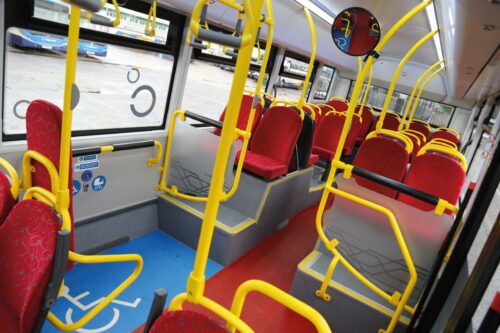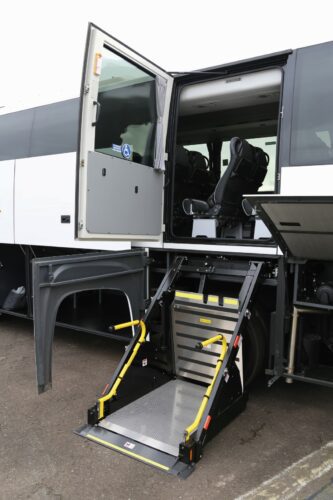
Jonathan Welch speaks to Damian Chung, the founder of training provider Accessible Ltd and finds out how his background led him to start his own training business
There are a number of common complaints that we here at CBW regularly hear from operators and suppliers. They’re probably the same ones that the industry was making a decade, two decades, and even longer ago: Vehicles are becoming ever more complicated; there are more and more rules and regulations to comply with; monitoring is becoming stricter; staff training is becoming more burdensome. I’m sure there are numerous others too.
Among those seeking to address the growing skills shortage is Damian Chung, founder and head of Accessible Ltd, which is building up a portfolio of training courses covering all aspects of the coach and bus sector to help operators, manufacturers and suppliers to keep on top of the ever-growing demand and burden. With extensive experience in the transport sector thanks to years working in the transport industry, Damian’s company now offers courses aimed at driver training, covering topics including health and safety as well as driver’s duties and legal responsibilities when it comes to passenger care, whether that be passengers in general or those with specific individual needs such as wheelchair users.
“Working within the coach and bus industry, and being in charge of specialist wheelchair-accessible vehicle conversion workshops, introduced me to the importance of safely transporting wheelchair users and understanding the specialist equipment required to keep them safe during a journey,” explained Damian. “My business began back in 2013, although I’ve been in the transport industry all of my life really. After I left school I went into the military, and when I left I moved into transport.
“Eventually, in the early 2000s, I found myself running a workshop for a well known vehicle dealer, which introduced me into the world of vehicle conversions. I did that for quite a few years and then in 2013 I decided that I wanted to work for myself, and specialise in training. This led me to working with the disability equipment manufacturers, providing training on their products, and then also offering a general training service for people carrying disabled people aboard their vehicles.”

Legal imperative
”Changes to the law in 2017 meant that if you offered a transport service to able bodied people, you must now be able to offer the same level of service to disabled people, and to do that then you need correctly-trained staff. The vehicle must be able to carry them, but staff need to know how the equipment works. The introduction of PSVAR [Public Service Vehicle Accessibility Regulations] aimed to manage this going forward within the industry. It’s probably only in the last couple of years really that we’ve had more and more operators really getting on board and trying to comply with it.
“What that means from a compliance point of view is not just that you must have vehicles that can carry disabled people, but more importantly, the drivers must be trained with that equipment. They must know how to get people on and off safely, and they must have the knowledge base to be able to make dynamic assessments as to what they and their vehicle and equipment are capable of carrying, because it sometimes becomes quite complex. With things like powered wheelchairs, for example, which weigh considerable amounts due to the batteries, the lifts that get them onto the vehicles typically have a safe working load but if the driver doesn’t understand that information correctly, then they can overload the lift and it could fail, or somebody could be injured.
“Not only are there the immediate consequences, but there could follow an investigation by the DVSA or a call to a public inquiry. Some companies or staff with good intentions could fall foul of the law if they haven’t had the right training to give them a thorough understanding. They could inadvertently be carrying passengers in an unsafe manner, a dangerous manner, just because they don’t know any different.
“So, what can we do about it? We can’t change what’s required, and we can’t change how people behave, but we can make sure that companies and drivers are in the best position to handle situations when they arise.”
[…]Are you enjoying this feature? Why not subscribe to continue reading?
Subscribe for 6 issues/weeks from only £6Or login if you are already a subscriber
By subscribing you will benefit from:
• Operator & Supplier Profiles
• Face-to-Face Interviews
• Lastest News
• Test Drives and Reviews
• Legal Updates
• Route Focus
• Industry Insider Opinions
• Passenger Perspective
• Vehicle Launches
• and much more!


